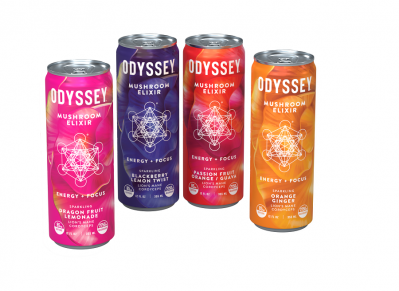What is a mushroom? Ten thousand people weigh in

“We commissioned this survey as a logical extension of our campaign for clarity and accuracy in mushroom product labeling…we thought knowing what consumers actually think was important information for the industry to have,” said Skye Chilton, Nammex CEO. “This data confirms that the vast majority of consumers have a fairly specific idea of what constitutes a mushroom.”
Respondents were shown a variety of mushrooms and asked to identify what they were. More than 90% of people called them mushrooms. About 12% labeled them as fungi and nearly 3% called them a fruiting body, however most respondents didn’t know what a fruiting body was.
Respondents were then presented a photo that showed mycelium growing on a grain substrate in a plastic bag. While nearly 21% identified the myceliated grain as a mushroom, about 79% said it was not a mushroom. Individuals who identified the myceliated grain as a mushroom did so in the context of having used mushroom growing kits.
Citizen Petitions
Acknowledging whether the mycelium is part of the mushroom is a point of contention between Nammex and other fungi-derived ingredient players that supply mycelium-based products.
Nammex has said that the failure of suppliers to identify fungal part/growth stage and to disclose the presence of any substrate used to grow the ingredients can lead to deception and fraud in the marketplace, as well as confusing consumers.
Other players disagree, notably Fungi Perfecti. An open letter from Fungi Perfecti addressed the Citizen Petition filed by Nammex to the US Food and Drug Administration earlier this year, which requested the agency act to ensure proper labeling of fungi and fungal ingredients. Fungi Perfecti said the petition was “puzzling.”
“The word ‘mushroom’ describes the organism as a whole, whereas terms like ‘mycelium’ and ‘fruit body’ refer to distinct parts of the mushroom organism. This is perfectly parallel to saying ‘plant roots’, ‘plant seeds/spores’, and ‘plant flowers’. Both sets of terminologies describe the part of the organism,” according to the letter, which was cosigned by M2 Ingredients, Gourmet Mushrooms, and Monterey Mushrooms.
However, the FDA issued a labeling policy around mushrooms in 1976. It stated: “Mushroom mycelium grown in acceptable media is regarded as suitable for food use. Any food in which mushroom mycelium is used should be labeled to state that fact. Labeling should not suggest or imply that the food contains mushrooms.”
Jeff Chilton, Nammex’s founder, said the use of the term “mushroom mycelium” is problematic.
“The issue we’ve had in the mushroom category is that they haven’t really recognized the plant parts very well. Lots of companies out there are not putting the correct plant parts on their label. Rather than just say, ‘we’ve got mycelium in our product’, you can say, ‘oh, it’s mushroom’. That has been very confusing. The FDA has not stepped in despite this policy. This issue just doesn’t seem to want to go away,” Jeff told NutraIngredients-USA.
In 2017, the American Herbal Products Association (AHPA) issued a guidance policy on the Labeling of Dietary Supplements Containing Fungi Dietary Ingredients which has been described as a good start but doesn’t go far enough.
In addition, the Natural Products Association (NPA) submitted a Citizen Petition to the FDA to incorporate the AHPA’s labeling guidance for mushrooms, as well as requesting the FDA to “[exercise] enforcement discretion until the Agency provides guidance or publishes a regulation concerting a standard identity for dietary supplements or ingredients from fungal ingredients, including mushrooms, mycelia and fruiting bodies.”
As for the survey, Nammex says this data confirms that most consumers have a fairly specific idea of what constitutes a mushroom.
“It’s not a myceliated grain,” Skye said. “As we have said all along, to the industry and to FDA with our Citizen Petition asking for labeling clarity, it’s essential to be fair to consumers and not imply they are getting something they are not when they buy a product. It’s not only ethical, it protects the industry from losing their trust.”
























